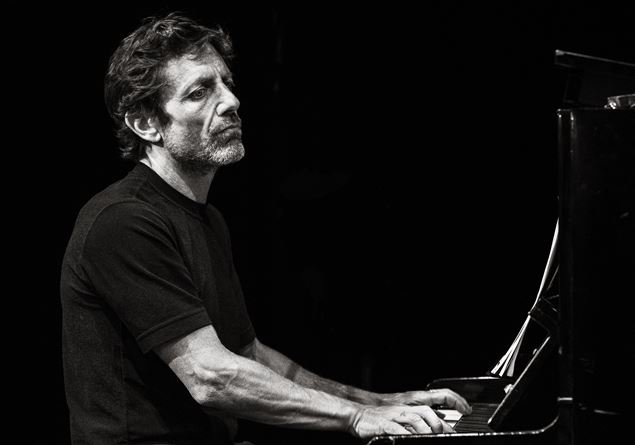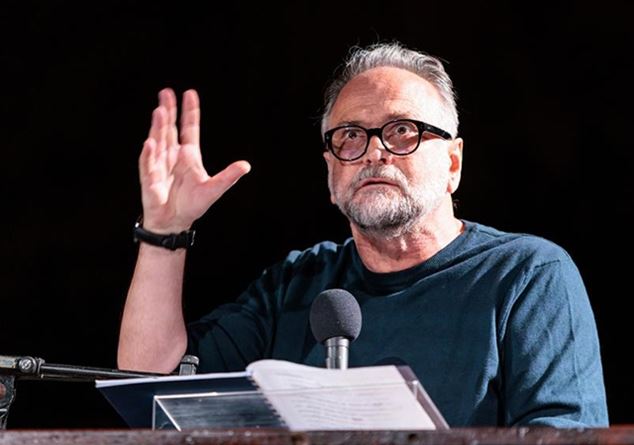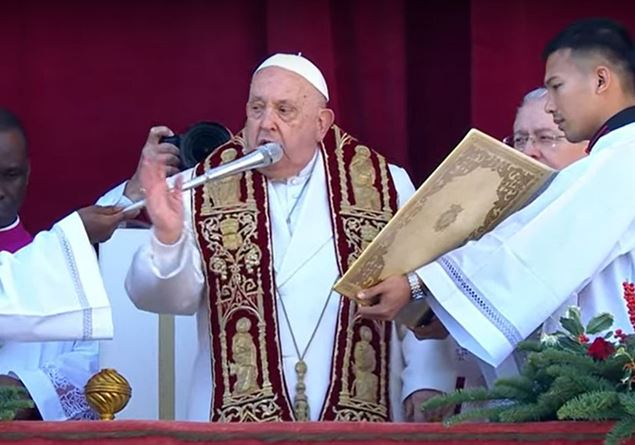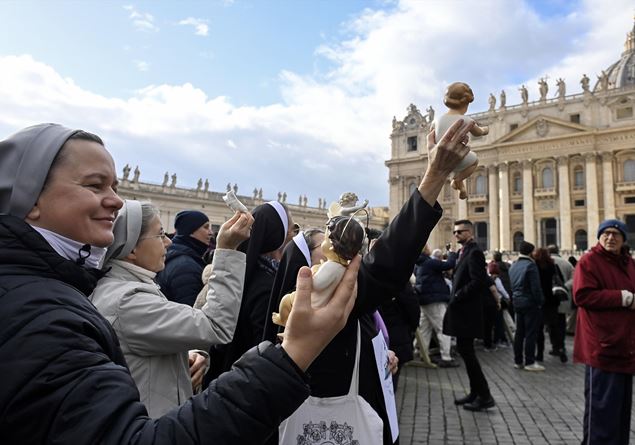
The cover of the December issue of Studi Cattolici.
The special issue of Catholic Studies December explores the theme of take care of otherswith interventions by Paola Binetti, Giovanna Razzano, Antonio Monteleone, Vincent Nagle, Massimo Pandolfi, Marinella Vedani, Giuseppe Genduso, Pietro Angelo Rossi and Emmanuel Exitu. Paola Binetti, psychiatrist and parliamentarian, introduces the dossier starting from biblical references and analyzing examples of “non-cure”, such as surrogacy, and of “positive care”, such as palliative care. The author criticizes the idea of absolute self-determination as the only value of modernity, underlining that true humanity manifests itself in care relationshipfrom which gratitude and generosity arise, pillars of our human identity. We anticipate an excerpt from the article.
by Paola Binetti
After creating the world, God promised man: “I want to give him help that corresponds to him.” This marks the culmination of creation: a relational model in which the human need for sharing finds full expression. Man is made to relate, experiencing authentic emotions and feelings, rooted in the essential values of life. Loneliness, on the other hand, represents an existential risk. The complementarity between different people, based on individual talents, allows mutual help, in a continuous balance between autonomy and fragility. Only those who know their own weaknesses can truly take care of others, as the ancient metaphor of the “wounded healer” reminds us. The biblical story highlights the importance of relationships: with God and with others. “In the beginning was relationship” suggests that no one can exist without the other. Loneliness can be transformed into an opportunity to open up to others, overcoming one’s limits through new impulses of generosity and intelligence. In the Bible, the caring relationship reflects the image of God: a fatherhood and brotherhood that manifests itself in sharing and mutual support.
Absolute autonomy is an illusion that leads man to the most unfortunate temptation: thinking he can live without others. On the contrary, mutual care is the foundation of life. Gratitude and generosity, born from the caring relationship, not only define our humanity but guarantee social cohesion and solidarity between generations. For the care relationship to make sense, a solid personal identity is essential. Caring is not limited to the desire to help another, but requires empathy, wisdom and a deep understanding of the needs of others. Shared fragility allows us to transform the fear of loneliness into a spirit of service. Every relationship helps change who we are. Some are abandoned, others transformed, while new relationships enrich our existence. Even at a distance, important connections continue to influence us, such as those with parents, teachers or friends who have left an indelible mark. Even institutions, to make sense, must embody the principle of care. They must go beyond the economic and technical dimension, putting the person and their needs at the centre.
Institutional care means guaranteeing dignity to every individual, especially the most fragile, through an ethical approach that protects life and its transcendence. Surrogacy, an example of “non-care”, breaks the primordial bond between mother and child, fundamental for the child’s emotional development. On the contrary, palliative care represents the essence of the care relationship. They accompany the person in the final phase of life, alleviating pain and offering dignity. Pope Francis underlined the importance of these treatments as a response to the “throwaway culture”, which sacrifices the weakest in the name of efficiency. Palliative care, integrated with listening and empathy, shows how true care is not just a medical act, but a human and spiritual commitment. In an increasingly individualistic world, caring for others is a revolutionary act. Gratitude and solidarity are the engine of a just society, as the encyclical Fratelli tutti reminds us. True charity manifests itself in the caring relationship, which invites us to recognize the intrinsic value of every life, especially that of the most fragile. Mutual care, therefore, is not just a moral duty, but the foundation on which to build a more humane and cohesive society.








